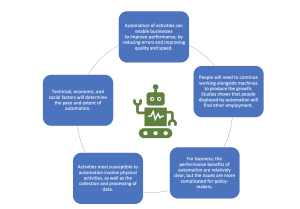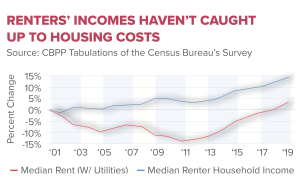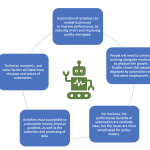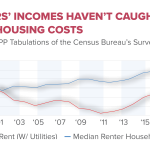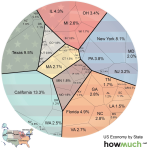Research Funding Impact is crucial for the vitality of the U.S. economy, shaping not only current scientific achievements but also future innovations. With recent freezes on significant grants, such as the $2 billion halted by the NIH, the fabric of entrepreneurship and innovation stands at risk. Harvard’s response to federal demands has spotlighted the detrimental effects that funding cuts could impose on the startup ecosystem. Given that every dollar invested in biomedical research yields $2.56 in economic activity, the stakes are undeniably high. As we explore the ramifications of reduced funding, it’s essential to understand its role in fostering U.S. economic growth and nurturing the next generation of entrepreneurs.
The impact of financial support for research initiatives goes beyond mere statistics; it fundamentally influences the trajectory of innovation in America. The interconnection between academic institutions and the entrepreneurial landscape is vital for generating breakthroughs that can lead to successful ventures. Recent disruptions in funding mechanisms, particularly the NIH research freeze, threaten to undermine the momentum of startups that rely on cutting-edge scientific discoveries. Furthermore, the vital role of universities in cultivating new talent and ensuring access to research-driven resources cannot be overstated. As we navigate these challenges, comprehension of this intricate relationship will be essential for revitalizing entrepreneurship and sustaining economic progress.
The Role of Research Funding in U.S. Economic Growth
Research funding is pivotal for driving innovation and economic growth in the United States. Federal investments in research not only fuel groundbreaking discoveries but also establish a solid framework for the commercialization of new technologies. For every dollar spent on federal biomedical research, there is a remarkable return of $2.56 in economic activity, illustrating the profound impact on the startup ecosystem. This financial backing supports a plethora of emerging enterprises, enabling them to introduce scientific innovations to the market, thus propelling U.S. economic growth.
The recent freeze on NIH research funding, which affects over $2 billion in grants at Harvard alone, poses a significant threat to this growth trajectory. Without these funds, universities struggle to sustain research initiatives, causing potential long-term damage to the startup landscape. The productivity of innovation hubs like Harvard’s Wyss Institute or Broad Institute relies heavily on continuous research funding; without it, the flow of new ideas and technologies is likely to stagnate, impacting not just specific sectors but the entire U.S. economy.
Impact of the NIH Research Freeze on Innovation
The NIH research freeze has immediate and long-term repercussions for innovation in the U.S. startup ecosystem. Initially, many research initiatives are placed on hold, and promising projects face potential cancellation. This freezing of resources leads to a decrease in the number of startups launched from academic institutions, as aspiring entrepreneurs find themselves with limited access to the vital research that forms the backbone of their business ideas.
Over time, as the effects of the funding freeze ripple through the ecosystem, we will likely witness fewer novel solutions entering the marketplace. This stagnation could mirror the challenges faced during economic downturns, when innovation slows and economic growth falters. Entrepreneurs and faculty members who depend on vibrant research environments may find their ability to innovate hampered, ultimately undermining the competitive edge of the U.S. in global markets.
Understanding the severity of NIH funding cuts is crucial, especially considering that many innovative ideas take years to materialize into commercially viable products. The effects of these decisions will not only alter today’s landscape but will also shape the future of entrepreneurship and innovation in the U.S.
Connecting Universities and Startups: The Entrepreneurial Ecosystem
In the context of the startup ecosystem, research universities act as incubators where ideas flourish and entrepreneurial talent is nurtured. By integrating a strong entrepreneurial curriculum and resources such as technology licensing offices, institutions like Harvard play a vital role in bridging the gap between academia and industry. These pathways encourage faculty and students to explore commercial viability, resulting in numerous successful startups emerging from university labs each year.
The symbiotic relationship between research universities and the startup ecosystem is particularly evident through collaboration. For instance, initiatives at Harvard, including mentorship from experienced venture capitalists and structured support systems, enable budding entrepreneurs to transform scientific research into viable business models. Such ecosystems thrive on the availability of research funding; when that support diminishes, it risks the stability and growth of an entire generation of innovative businesses.
Entrepreneurship and Innovation: Federal Funding as a Catalyst
Federal funding serves as a crucial catalyst for entrepreneurship and innovation in the U.S. economy. It is not merely the availability of resources that matters; it’s the ability to attract top talent from around the globe to research institutions that enhances competitive advantage and fuels economic dynamism. Research universities, with robust funding, remain hotbeds for cultivating entrepreneurial talent and facilitating the transition of innovations into successful startups.
When federal funding is secured, it catalyzes a continuous cycle of development where ideas evolve into intense entrepreneurship engagements, which subsequently drive economic growth. Importantly, the connection between research, innovation, and entrepreneurship illustrates the pivotal role that understanding government funding policies plays in crafting a robust startup ecosystem.
Federal Research Funding: A Necessity for U.S. Startups
Federal research funding is not just a financial support mechanism; it represents an investment in the future of U.S. startups and innovation. The backing of research through grants promotes a culture of exploration and invention that is essential for the development of new technologies and commercial products. Without this support, the risk of reducing the pool of innovative ideas significantly increases, leading to potentially disastrous economic implications.
Startups often rely heavily on the scientific breakthroughs generated by federally funded research to establish their unique value propositions. With the NIH research freeze disrupting the chain of funding delivery, the newly forming startups lack the foundational research needed to innovate effectively, resulting in a concerning downturn in the entrepreneurial spirit that has historically marked the U.S. economy.
Navigating the Future: Can Research Funding Loss Be Reversed?
As institutions grapple with the impact of the loss of research funding, the question arises: can this situation be reversed? Economists suggest that while the immediate effects are daunting, the long-term damage to the entrepreneurial landscape could potentially be mitigated. However, it will require strategic refocusing of efforts toward reinstating and enhancing research funds to encourage sustained innovation.
Rebuilding the research framework is essential not just for individual startups but for the broader economy. Innovations that take root today through reinstated funding will eventually lead to a resurgence in economic activity. Yet, addressing the bureaucratic and political challenges surrounding research funding will be crucial to restoring the previous momentum of innovation and entrepreneurship in the U.S.
The Importance of Entrepreneurship Curriculum in Universities
A comprehensive entrepreneurship curriculum within universities is essential in preparing students for real-world challenges and opportunities in the startup ecosystem. At Harvard Business School, the focus on launching technology ventures equips students with critical skills and knowledge to transform their academic projects into successful startups. This proactive approach to developing entrepreneurial talent plays a fundamental role in fostering innovation.
With an increasing number of students engaging in entrepreneurship, universities serve not only as educational institutions but also as catalysts for economic development. The interplay between a strong entrepreneurial curriculum and access to research resources amplifies the chances of students launching effective startups, thus impacting the U.S. economic landscape positively.
The Interdependency of Research and Startups
The interdependency between research initiatives and startup creation is clear: successful startups are often birthed from rigorous academic research. Institutions like Harvard, with their abundant resources and collaborative environments, provide an ideal landscape for nurturing business ideas until they achieve commercial viability. When federal funding supports this research, the entire ecosystem flourishes—and when funding is cut, the consequences can be dire.
Understanding this symbiotic relationship can reshape how policymakers view the importance of research funding. Instead of seeing it solely as an expenditure, framing it as a necessary investment in future economic growth could lead to more robust support for research initiatives that ultimately benefit the startup community.
Future Outlook: Entrepreneurship Amid Funding Uncertainty
The future outlook for entrepreneurship in the U.S. amidst funding uncertainty begs critical analysis. As universities and startups begin to navigate a landscape with restricted resources, the ability to innovate may become increasingly reliant on non-traditional funding sources. Entrepreneurs must seek alternative avenues for financing, potentially reshaping their approach to establishing new ventures.
Additionally, a heightened emphasis on resilience and adaptability will be necessary for students and entrepreneurs alike. By embracing strategic insights and leveraging existing networks, those in the startup ecosystem can find pathways to success even in the face of reduced federal support. This shift could lead to an evolution of the entrepreneurial model, emphasizing sustainability and creativity in overcoming funding challenges.
Frequently Asked Questions
What is the impact of Harvard research funding on U.S. economic growth?
Harvard research funding is crucial for U.S. economic growth as it enhances scientific innovation and attracts top talent. Each dollar invested in federal biomedical research generates $2.56 in economic activity, significantly bolstering the economy.
How does a freeze on NIH research funding affect the startup ecosystem?
A freeze on NIH research funding disrupts the startup ecosystem by slowing down the development of new technologies and medical advancements. This lack of funding leads to fewer startups being established, impacting innovation and economic growth.
Why is federal research funding essential for entrepreneurship and innovation?
Federal research funding supports labs in generating novel ideas, fostering an environment ripe for entrepreneurship and innovation. It allows research institutions to attract global talent, which is critical for advancing technology and launching successful startups.
What are the potential long-term effects of cuts to research funding at Harvard?
Cuts to research funding at Harvard could lead to a decline in startup formation, reduced job creation, and overall economic stagnation. The expected decrease in GDP by as much as 3.8 percent could mirror the impact of the 2008-2009 Great Recession.
How do research universities influence the startup ecosystem?
Research universities like Harvard influence the startup ecosystem by producing cutting-edge research, providing entrepreneurial education, and connecting students and faculty with venture capitalists, all of which facilitate the creation of new businesses.
What role do faculty play in the relationship between research funding and startups?
Faculty at research universities often conduct groundbreaking research, leading to commercialization opportunities that can spawn new startups. Their expertise and innovative projects are fundamental to driving entrepreneurship.
Can the negative effects of the NIH research freeze be reversed?
While the negative effects of the NIH research freeze can potentially be reversed, it will take one to three years to see significant changes as the pipeline of research projects transitions into market-ready innovations and startups.
| Key Points | Details |
|---|---|
| Impact of Funding Cuts | Harvard faced a $2 billion freeze in research grants, impacting innovation and economic growth. |
| Economic Implications | Cuts could reduce GDP by 3.8%, resembling the Great Recession effects. |
| Role of Research Universities | They serve as incubators for startups, providing both talent and resources. |
| Federal Funding Importance | Resources lead to novel ideas, crucial for developing successful startups. |
| Long-Term Effects of Funding Freeze | The effects may take 1-3 years to fully manifest, affecting startup formation. |
| Entrepreneurship Education at Harvard | Harvard Business School offers a rich curriculum, fostering successful startups. |
Summary
Research Funding Impact is critical to the advancement of innovation and economic growth in the U.S. The recent funding cuts at Harvard highlight how essential federal support is for scientific research. As shown, the consequences of these cuts are not merely immediate; they threaten the very fabric of the startup ecosystem that drives economic expansion and technological breakthroughs. Without adequate funding, fewer startups are likely to emerge, stunting progress and diminishing the global position of U.S. entrepreneurship.

